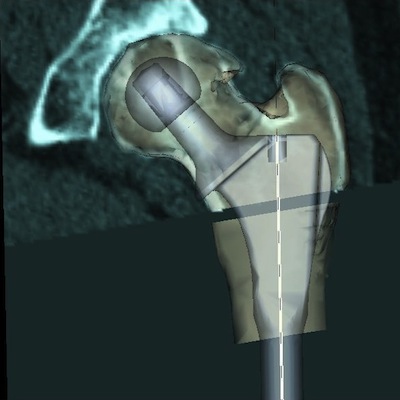Tips - preparing for hip replacement surgery
Here are 10 ways to prepare for your hip replacement surgery.
- Learn about the procedure. Before you check into the hospital, learn everything you can about hip replacement surgery, the type of replacement joints available, and the details of recovery. Check out reputable web sites such as the American Academy of Orthopaedic Surgeons (AAOS) or the American Association of Hip and Knee Surgeons (AAHKS).
- Write down questions for your surgeon. You're going to have lots of questions for your doctor, but it may be hard to remember them all when you're sitting in the office. Instead, write down questions beforehand on a pad and go in prepared.
- Consider the impact on work. Think through how surgery and recovery will affect your job and home life. Depending on the demands of your job, you may need a few weeks -- or even a few months -- away from work.
- Get in shape. If you go into surgery in good shape, you could dramatically speed up your recovery. If you're overweight, try to lose a few pounds. Building up strength is important too. A strong upper body will make it much easier to get around on crutches or a walker.
- Meet with a physical therapist. Physical therapy is key to a good recovery and a successful hip replacement. Instead of waiting until after surgery, see if you can meet with the physical therapist now. Learning some of the exercises before surgery could make them easier to do later.
- Test drive your crutches or walker. See if you can borrow a pair of crutches or a walker at the doctor's office. Try to get comfortable using them now.
- Ask if you should bank blood. It may be a good idea to start storing blood for your doctor to use during the procedure.
- Get family to help. No one can recover from hip replacement alone. Work out a plan with your family. If you live alone, see if a friend or close relative could stay with you for a while. If you don't have a support system you can rely on, ask your doctor if you could stay in a rehab facility after surgery while you recover.
- Rearrange your home. If you'll be recuperating at home, you need to make some changes. Consider moving your bedroom to the first floor. Set up a kind of "base camp" where you'll spend most of your time -- with phone, computer, remotes, and everything else you'll need in easy reach. Make sure your house will be easy to move around in with a walker or crutches. Remove possible tripping hazards, such as loose rugs.
- Buy assistive devices. Gadgets -- such as reachers or long-handled shoe horns -- will come in handy after surgery. Setting up railings on stairways or in the bathroom could also make life after surgery easier and safer.








Comments
Comments 2I think it is a great idea to write down the questions that you may want to ask your surgeon, as the article suggests. When I had my operation I know that there were a number of questions I had hoped to ask, but wasn't able to think of when the time came. Writing them down should ensure that this doesn't happen, and should ultimately result in you being more informed and confident.
Gaston | http://www.jlanemed.com
Nice, article.